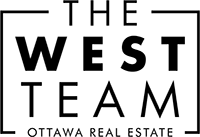Mortgage pre-approval & mortgage options
The first step in the home buying process is knowing how much you can budget for. A pre-approval lets you know how much you can afford, what your interest rate will be and what your monthly mortgage payment will look like. It’s important to have a complete understanding of your finances so you can confidently make an offer on a home you can afford.
Application checklist
These are important documents to have readily available before shopping for a home as they are necessary for a mortgage broker to complete a pre-approval. You will need the following:
At this point the lender will:
1. Take your application.
2. Begin the process of verifying all the data.
During this step, you may have the opportunity to lock in your interest rate. Make sure that you ask your lender about rate locks and understand what it means.
It is extremely important that you stay in constant contact with your lender to make sure they have all the documentation needed. Not providing documentation in a timely fashion is a surefire way to delay the closing on your home.
Open vs. Closed Mortgages
The main difference between open and closed mortgages is the amount of flexibility you have in making extra payments or paying off your mortgage completely. Putting extra money toward your mortgage is called a prepayment. Prepayments allow you to pay down your mortgage faster.
Open Mortgages
While the interest rate may be higher than on a closed mortgage, an open mortgage allows more flexibility. You can:
- make a prepayment toward your mortgage on top of your regular payments at any time
- pay off your mortgage completely before the end of the term
- renegotiate your mortgage before the end of your term
- break your contract to change lenders before the end of your term
Closed Mortgages
Closed term mortgages usually limit the amount of prepayments you can put toward your mortgage each year on top of your regular payment without paying a penalty. Extra payments outside of a contract’s prepayment privilege may receive a penalty if:
- you make a prepayment that is more than what your lender allows.
- you decide to break your mortgage contract.
A closed mortgage may be a good choice for you if:
- you plan to keep your home for the rest of your loan’s term.
- the prepayment privileges provide enough flexibility for the prepayments you expect to make. This amount varies from lender to lender.
Amortization Period
The amortization period is the length of time it takes to pay off a mortgage in full. The longer the amortization period, the lower your payments will be. Keep in mind that the longer you take to pay off your mortgage, the more you’ll pay in interest.
If your down payment is less than 20% of the purchase price of your home, the longest amortization you’re allowed is 25 years.
Types of Mortgage Terms
The mortgage term is the length of time your mortgage contract will be in effect. This includes everything your mortgage contract outlines, including the interest rate. Terms can range from just a few months to five years or longer.
At the end of each term, you’ll need to renew your mortgage. You’ll most likely require multiple terms to repay your mortgage in full. If you’re able to pay off your mortgage in full at the end of your term, you don’t need to renew your mortgage.
If you want to renegotiate your mortgage contract or pay off your mortgage before the end of the term, you may be in breach of your contract or your prepayment privilege.
When choosing the length of your term, you may want to consider:
- if you plan on moving
- if you want to have the same payment for a longer period of time
The West Team has teamed up with incredible mortgage brokers that have assisted hundreds of our clients over the years. These advisors do what seems to be the impossible in a pinch. Connect with us for a referral to a mortgage broker who fits your needs.







